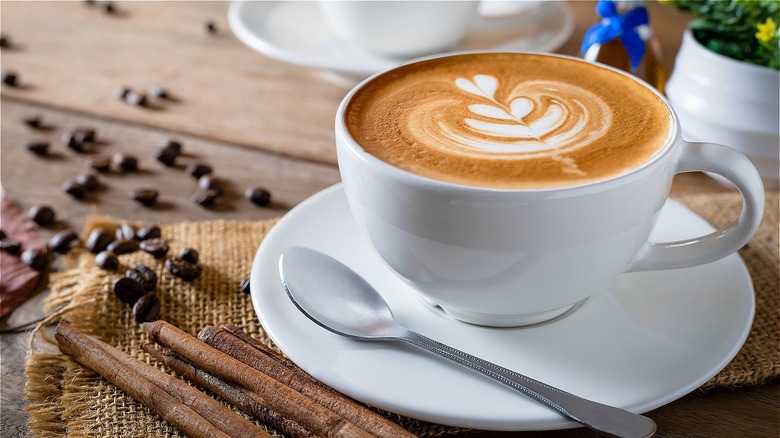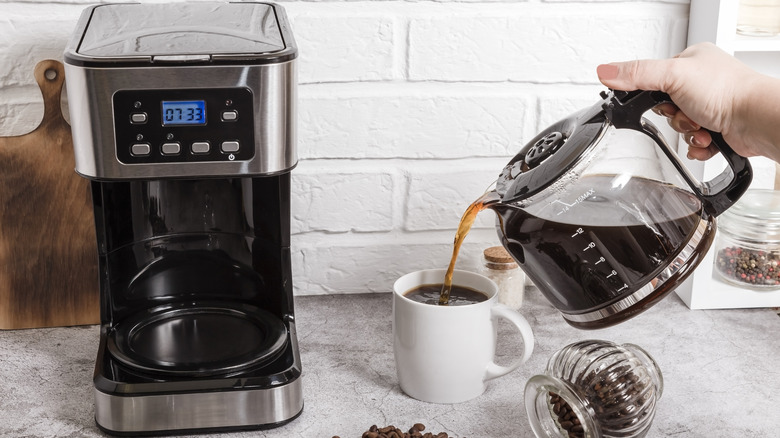The Disturbing Experiments Of Sweden's 18th Century Coffee Ban
Swedish winters can be pretty fierce, although just how cold it gets varies widely based on what part of Sweden you live in, but suffice it to say, a warm beverage has its appeal (via Trip Savvy). Perhaps unsurprisingly then, Sweden is currently ranked sixth among countries that drink the most coffee, consuming an average of 18.2 kilograms per person (per World Population Review).
Coffee culture and customs are a big deal in Sweden. They even have a word, fika, which translates to a coffee work break during which you mingle with friends. It's become a tradition that embodies the Swedish view that a work-life balance is paramount. The term derives from kaffi, the Swedish word for coffee, and generally involves sipping on a piping hot cup of Joe, paired with a local pastry (per MTPak).
It's hard to imagine in this day and age, but coffee wasn't always readily accessible for Swedes. In the 18th century, multiple coffee bans were implemented in Sweden, highlighted by a disturbing experiment that sought to demonstrate the hazards of the beverage.
A pot of coffee a day keeps the doctor away
Unlike Prohibition in the United States and the ban imposed on alcohol, coffee wasn't just banned once in Sweden, but rather five times in total (via The Local). That may be hard for modern coffee drinkers to swallow, but many Swedish leaders regarded coffee consumption as harmful to one's health.
One Swedish monarch, King Gustav III, set out to prove this theory with an unsettling long-term experiment in 1771 that involved two twins who had been convicted of crimes and sentenced to death. King Gustav offered them a reduced sentence in exchange for participating in a trial that would require one twin to drink a pot of coffee a day for the rest of his life, while the other would be restricted to drinking only tea. Doctors would monitor the ongoing health of the brothers and report their findings, the desired outcome being, of course, that the coffee drinker would exhibit a decline (per Ancient Origins).
King Gustav was assassinated in 1792 (not for the coffee ban, but due to a coup attempt among the nobility to seize power) and both physicians assigned to assess the health of the twins also predeceased the brothers, so King Gustav never got the result he wanted. Both coffee and tea drinker, however, lived long, healthy lives. The Swedish coffee ban was finally repealed for good in the 1820s (via National Library of Medicine) — and there was much rejoicing.

